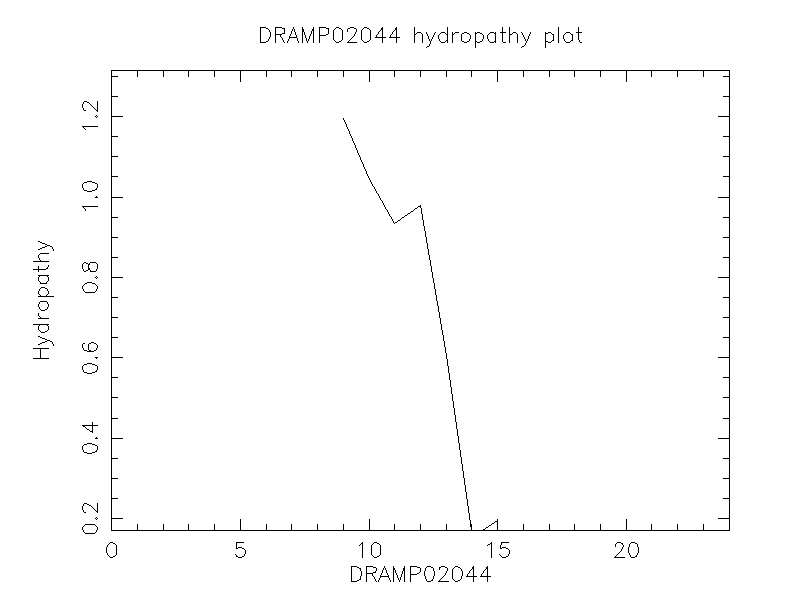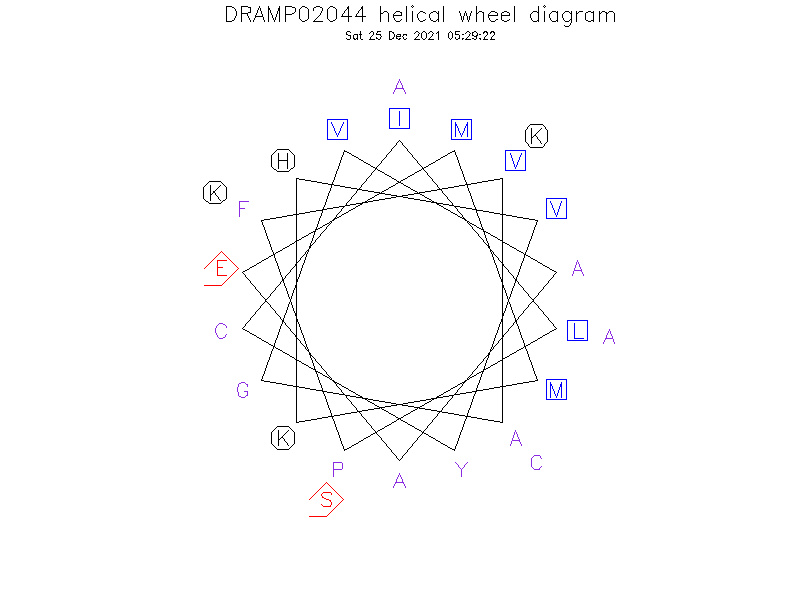General Information
-
DRAMP ID
- DRAMP02044
-
Peptide Name
- Brevinin-1-OR5 (Frogs, amphibians, animals)
-
Source
- Odorrana rotodora (Chinese odorous frog)
-
Family
- Belongs to the frog skin active peptide family (Brevinin subfamily)
-
Gene
- Not found
-
Sequence
- ILPFVAGVAAEMMKHVYCAASKKC
-
Sequence Length
- 24
-
UniProt Entry
- No entry found
-
Protein Existence
- Not found
Activity Information
-
Biological Activity
- Antimicrobial, Antibacterial, Anti-Gram+, Anti-Gram-, Antifungal
-
Target Organism
-
- Gram-negative bacteria: Escherichia coli ATCC 25922 (MIC=15.2 µg/ml), Bacillus pyocyaneus CMCCB 10104 (MIC=30.4 µg/ml);
- Gram-positive bacterium: Staphylococcus aureus ATCC 25923 (MIC=15.2 µg/ml).
- Yeast: Candida albicans (MIC=7.6 µg/ml).
-
Hemolytic Activity
-
- [Ref.22029824] It shows no hemolytic activity against human red blood cells at the concentration of 50 μg/mL.
-
Cytotoxicity
- No cytotoxicity information found in the reference(s) presented
-
Binding Target
- Not found
Structure Information
-
Linear/Cyclic
- Cyclic
-
N-terminal Modification
- Free
-
C-terminal Modification
- Cyclization (Cys18 and Cys24)
-
Nonterminal Modifications and Unusual Amino Acids
- Disulfide bond between Cys18 and Cys24.
-
Stereochemistry
- L
-
Structure
- Not found
-
Structure Description
- Not found
-
Helical Wheel Diagram
-
PDB ID
- None
-
Predicted Structure
- There is no predicted structure for DRAMP02044.
Physicochemical Information
-
Formula
- C115H187N29O29S4
Absent Amino Acids
- DNQRTW
Common Amino Acids
- A
Mass
- 2568.17
PI
- 8.82
Basic Residues
- 4
Acidic Residues
- 1
Hydrophobic Residues
- 11
Net Charge
- +3
-
Boman Index
- 10.53
Hydrophobicity
- 0.792
Aliphatic Index
- 89.58
Half Life
-
- Mammalian:20 hour
- Yeast:30 min
- E.coli:>10 hour
Extinction Coefficient Cystines
- 1615
Absorbance 280nm
- 70.22
Polar Residues
- 5
DRAMP02044

Comments Information
It differs from AP1824 only at position 14
- Q vs. K.
Literature Information
- ·Literature 1
-
Title
- Extremely abundant antimicrobial peptides existed in the skins of nine kinds of Chinese odorous frogs.
-
Pubmed ID
- 22029824
-
Reference
- J Proteome Res. 2012 Jan 1;11(1):306-319.
-
Author
- Yang X, Lee WH, Zhang Y.

